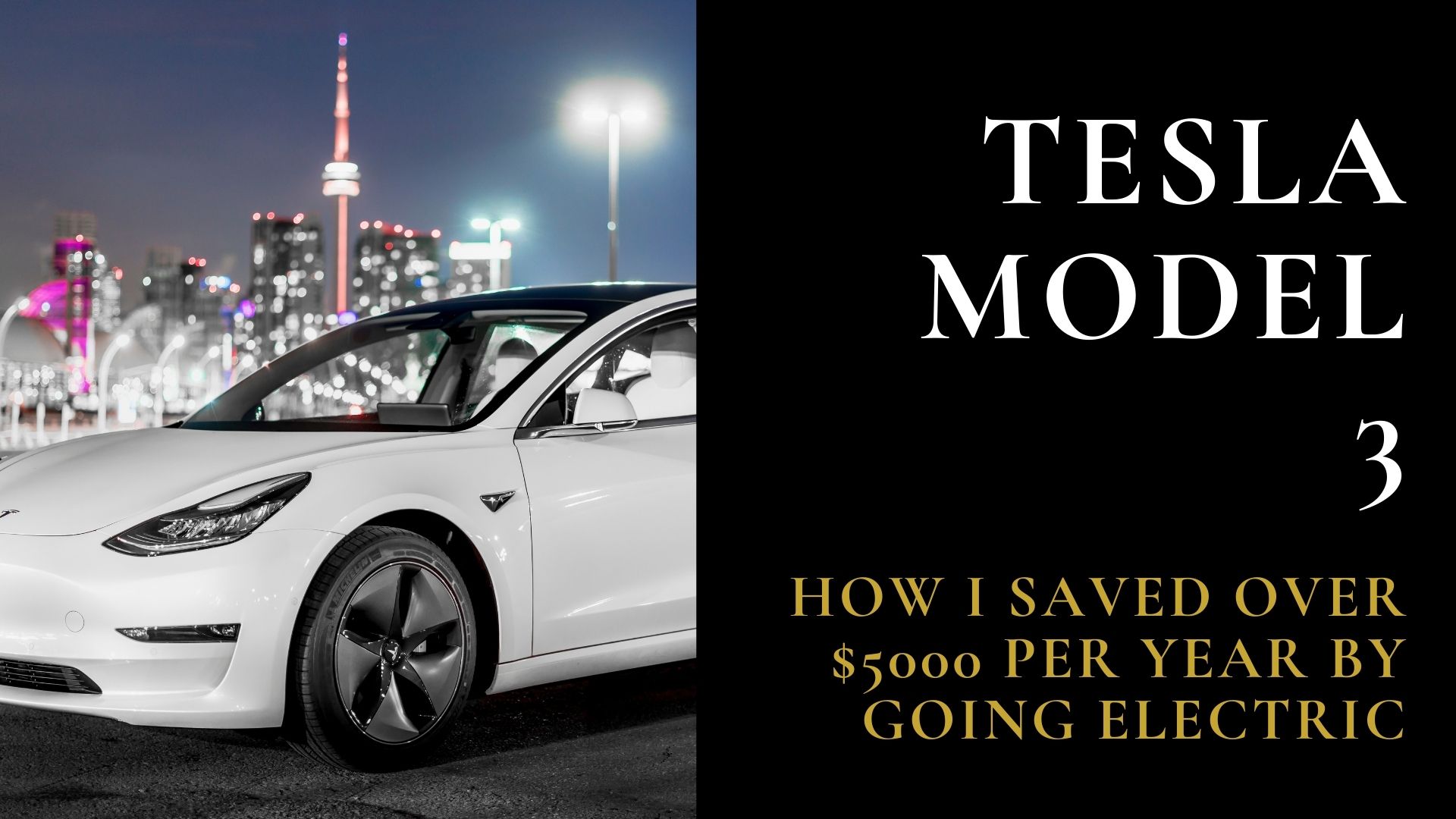
I drive a lot for my job.
It's completely normal for me to go from doing showings in Mississauga in the morning & then have to head out to Whitby in the afternoon (often in heavy traffic) which means that I spend a lot of time in my car.
As a result of this, one of the top expenses I incurred every year was the gas bill to fill up my 2017 Jeep Grand Cherokee that had a large V8 engine.
On average, I would spend roughly $80-100 per tank to fill up which would take me approximately 600km.
Multiply this by 25,000km driven & I was spending $4200 per year, however this could easily rise with ever-increasing gas prices.
Add on another $500 - 1000 per year for maintenance to take care of things like oil change, regular engine check-ups, etc and you're right around that $5000 mark.
All of this disappeared overnight when I switched to the Tesla Model 3 Long Range.
I was very fortunate to be given 2 years of free Supercharging at Tesla's charging network when I purchased the vehicle.
This means that for the 30,000km I've driven thus far including road trips to Mont Tremblant, Florida, Ottawa (multiple times) & Niagara Falls, I have payed a total of $0.00 to charge with Tesla's network.
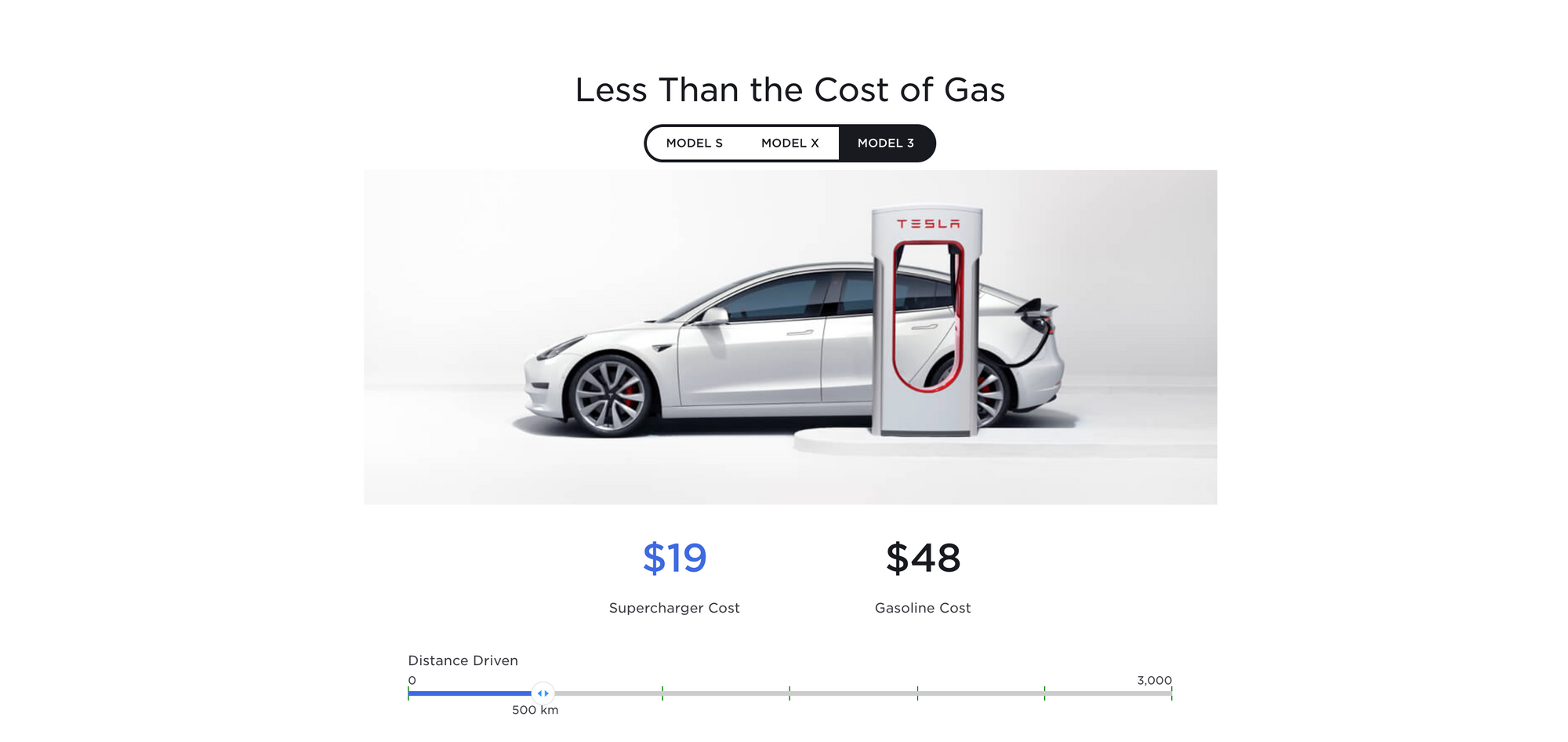
Charging experience (& cost)
Obviously it's not totally fair to compare a large V8-powered SUV to a small electric-powered sedan in terms of operation costs, so we'll use Tesla's own comparison chart to show what is the price difference between comparable vehicles.
Supercharging
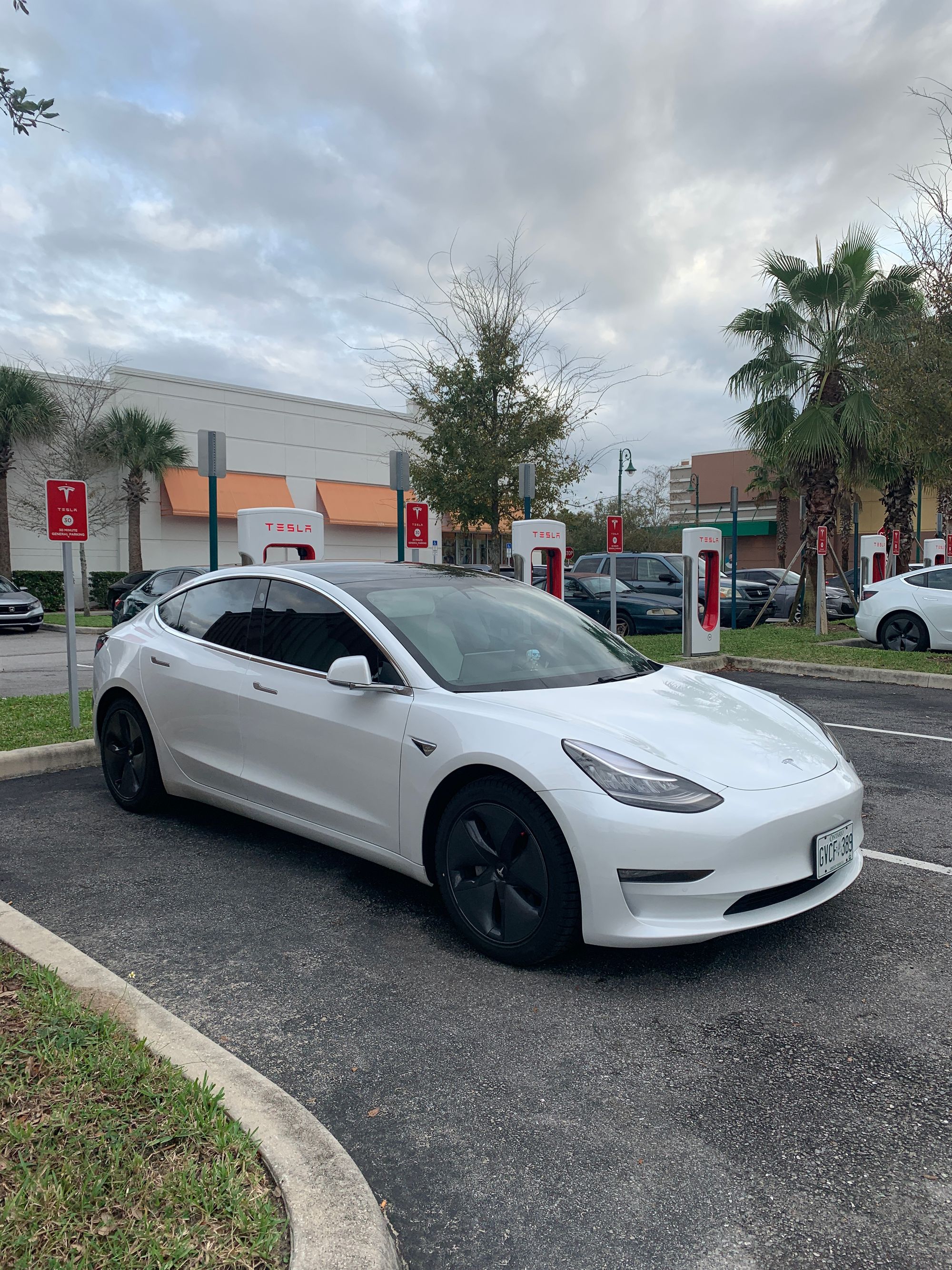
Tesla's supercharger network is unique to the company as they have established thousands of fast charging stations all across North America (& the world) which makes it extremely convenient & reliable to travel around.
When you buy your Tesla, an account is created for you where you can input your credit card info which then automatically bills you for every charging session.
This alleviates the need for an additional payment terminal at the charging station which can sometimes be a problem with other networks/electric vehicles.
If we use Tesla's chart from above, you can see that it costs roughly $19 to drive 500km with a Model 3 while a comparable gas vehicle would have to pay $48.
This means that by switching to a Tesla, you can instantly half your transportation expenses every year (potentially more if you charge at home).
There is a bit of a trade-off here as you can fill up a gas vehicle in several minutes while going from 0-90% battery can take 40 minutes or more.
Level 2 chargers
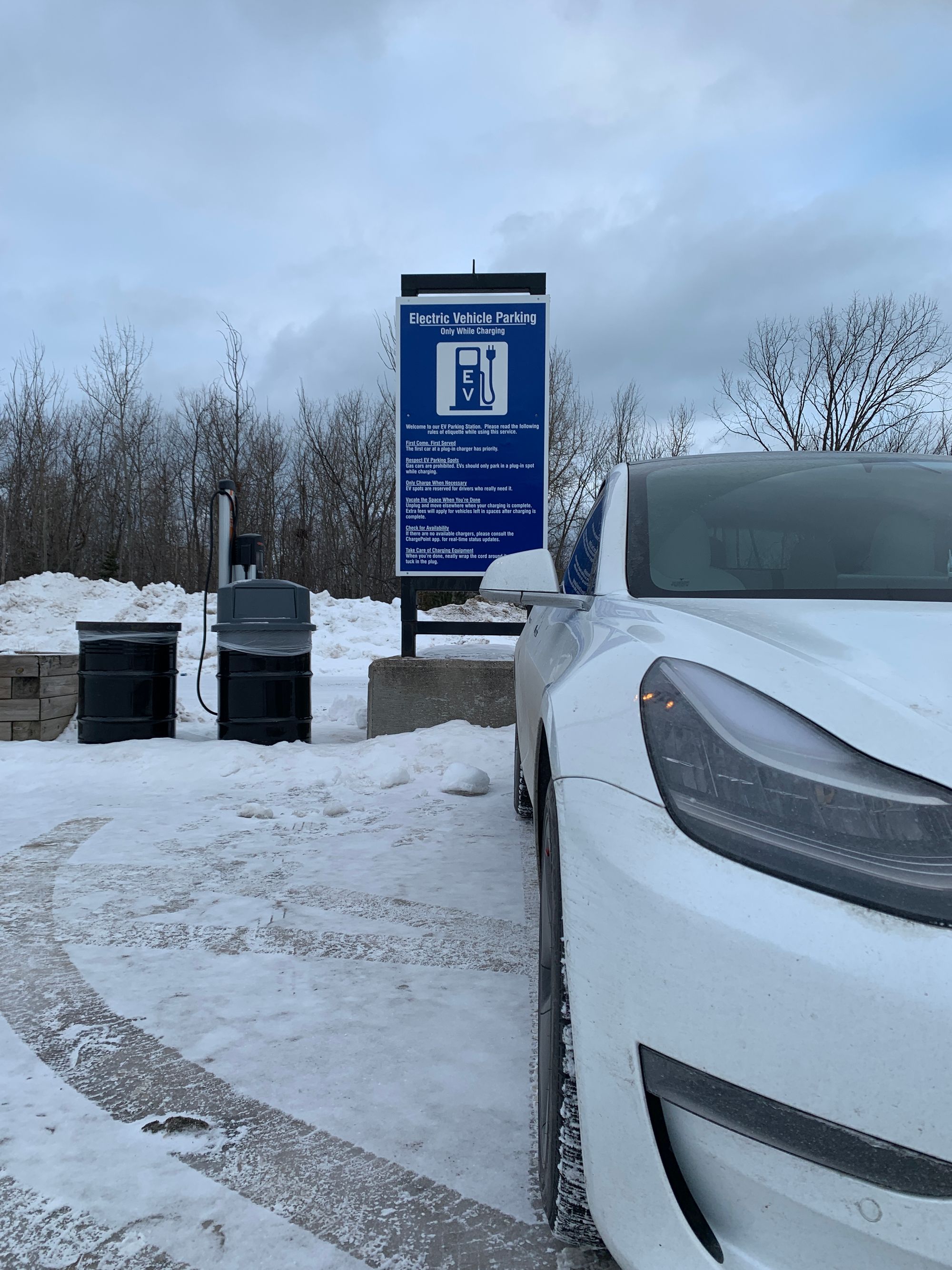
The other common charging option that most people will use are Level 2 chargers.
These operate at a fraction of the speed of a Supercharger, however they more commonly found as they can be used with a variety of EV's while Superchargers can only be used by Tesla's.
Typically these Level 2 chargers are hosted by companies like ChargePoint who require an additional app to begin the charging & facilitate the payment.
Prices vary quite widely as they are set per individual location, but you can usually expect to pay $1 per hour of charging, though it is occasionally possible find free level 2 chargers in certain parking lots.
The City of Toronto has actually done quite a good job at integrating these chargers into some of their Green P lots & actually has pilot-projects to have them installed on certain residential streets.
One of the Green P lots close to me in Distillery District offers 12 hours of parking for $9 but no cost to use the charging station, which means that you can get a full charge for $15-20 (again half of the cost of a gas-vehicle).
Maintenance
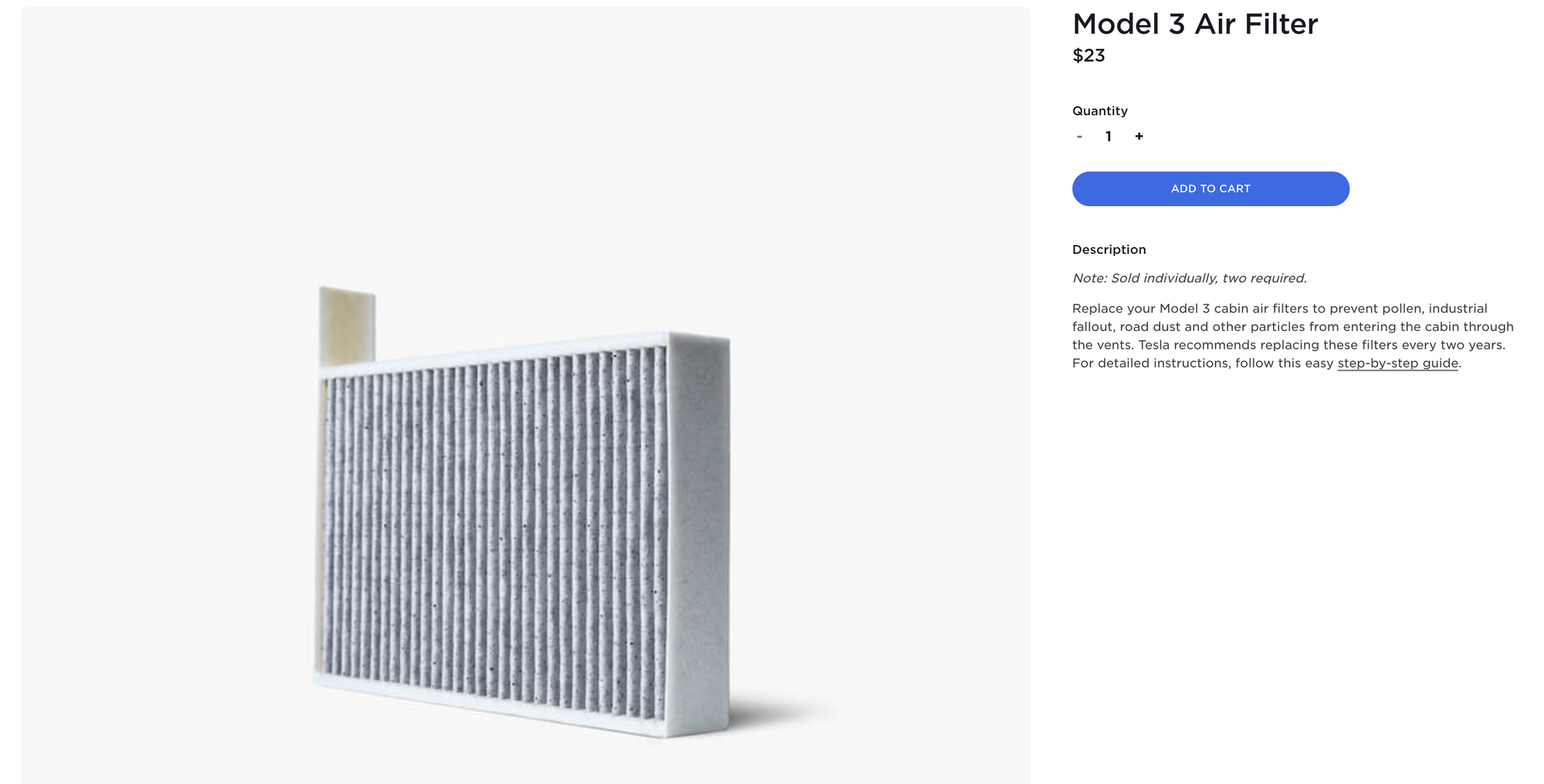
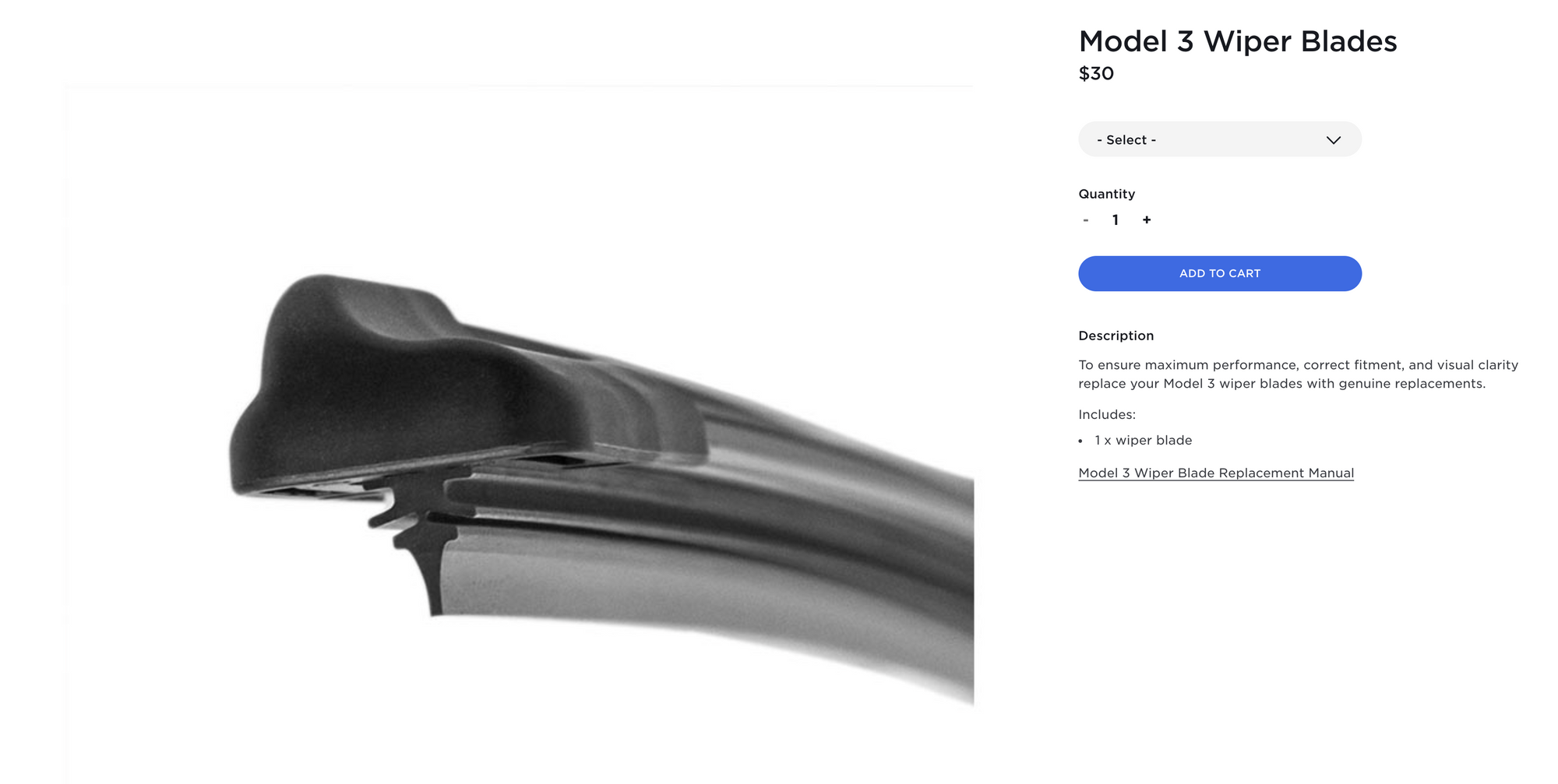
Another cost that completely disappeared when I purchased the Tesla was any on-going maintenance.
While a traditional gas vehicle needs yearly maintenance with oil changes, fuel system servicing, etc, an electric vehicle has next to none as there are very few moving parts in the motor.
The only items that Tesla recommends to maintain every year are the following:
- Cabin filter ($23 x 2)
- Washer fluid ($4)
- Wiper blades ($30 each x 2)
This works out to just over $100 per year vs. $500-1000 you can pay for a comparable gas-powered vehicle.
Summary
If you drive a lot, it's hard to argue the benefits of switching over to an electric vehicle.
You have half the travel costs & a fraction of the maintenance needed in addition to a much more fun driving experience with the instant torque of an electric motor.
Looking to buy your own Tesla?

Use my referral code and get 1500km of FREE supercharging!
If you have any questions about Tesla ownership, the charging experience, what it's like to drive or anything else, feel free to message me on Instagram or leave a comment below!
Rylie C.

Comments